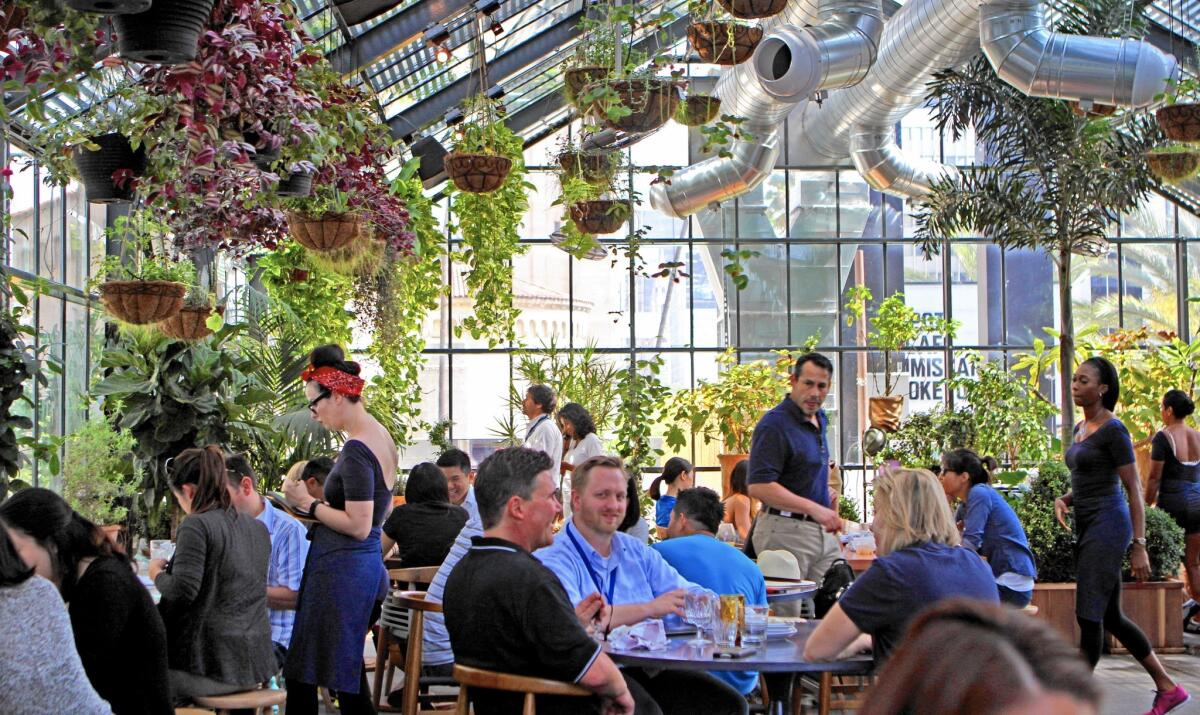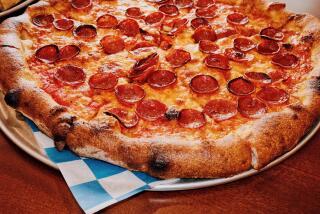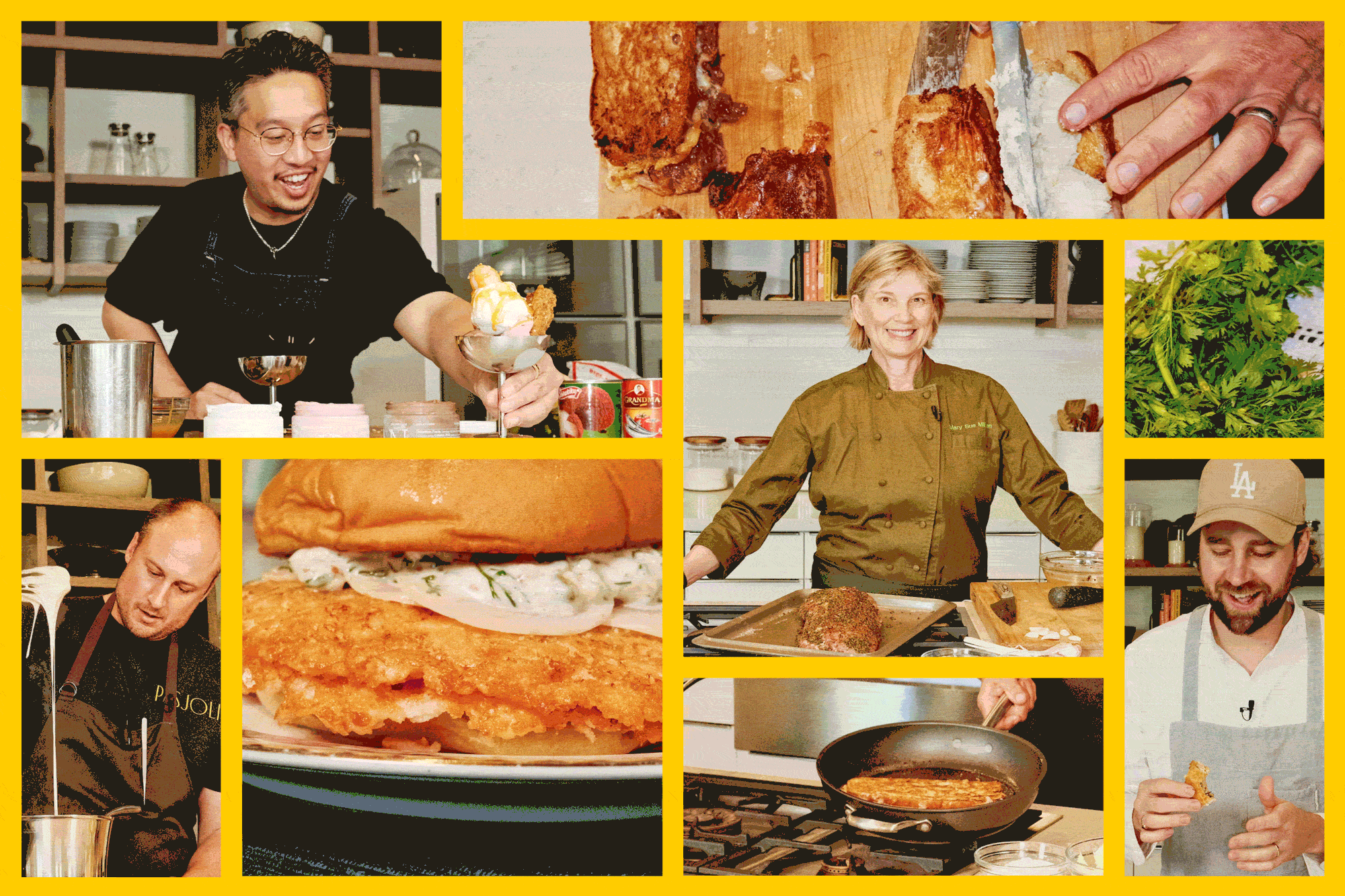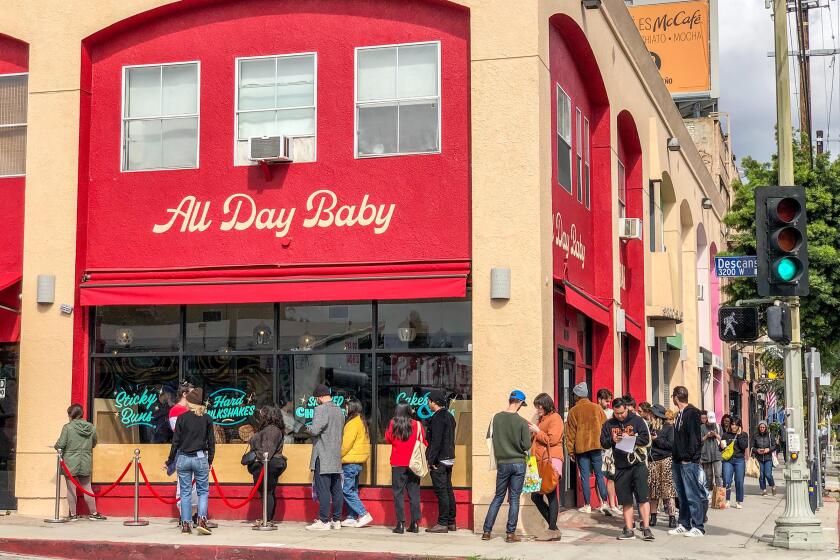At Commissary, Roy Choi gets to the essence of vegetables

Not so long ago, the greatest chefs were defined by their crawfish gratins, truffled soups and elaborate pheasant galantines. At the moment, a chef’s seriousness may well depend on his or her skill in preparing carrots. Daniel Patterson, of San Francisco’s Coi, infuses his carrots with the essence of hay, combining the flavors that horses love best. The best-known dish of Noma’s René Redzepi, often considered the greatest chef in the world, is a two-year-old carrot, survivor of a harsh Nordic winter, coaxed into meatiness through long, patient cooking. Alain Passard of Arpege, who de-emphasized meat at his three-star Paris restaurant a decade ago, once defined his mission as getting people to talk about the carrot the way a sommelier talks about Chardonnay.
Anybody can make a pork chop taste good. It takes dedication to cook a memorable carrot.
Roy Choi is the Los Angeles chef who became famous selling Korean tacos from his Kogi truck. His takes on student rice bowls, Hawaiian beach food and Jamaican party eats at Chego, A-Frame and Sunny Spot are both intelligent and easy to eat. If he listened to venture capitalists, there would probably be Kogi stands in half the food courts in America.
But as steeped as he is in L.A.’s working-class cuisine, Choi is part of world chef culture now — jetting off to conferences in New York, Copenhagen and Melbourne, where his ideas on food and community are taken very seriously. He has a bestselling memoir and a show on CNN. He plans to collaborate on a chain of healthy fast-food restaurants with Patterson, who is perhaps the most cerebral chef working in the U.S.
When Choi hinted that Commissary, his new restaurant in the Line Hotel in Koreatown, would be vegetable-focused, it made sense. Highbrow chefs concentrate on vegetables now. It is a given.
It still feels odd to wander through the lobby of the Line, past Choi’s bakery and the entrance to his Korean restaurant Pot, and emerge after a short elevator ride at the pool level, to a rooftop surrounded by midtown skyscrapers and into a tall glass structure that resembles a greenhouse, throbbing with the music of Earth, Wind and Fire. There are hanging plants, communal tables and a potting table that serves as a bar.
You are handed a recycled envelope on which the wine list is printed and inside which is an oblong, green card that looks more like a rebus from a children’s book than it does a menu. You order a cocktail, possibly a sweet “Pimp’s Cup” or a concoction of gin and beet juice, and it is served in a plastic takeout deli container, the kind line cooks have been swigging from since the Dark Ages. You point at pictures of vegetables because you don’t quite know what else to do.
So there are those carrots, roasted until they are shriveled and black, drizzled with tart yogurt, sprinkled with radish sprouts and served with green sauce. The carrots are good, of course, sweet with a tiny note of bitterness from the char, and they disappear as quickly as a plate of French fries. They can be placed in no particular tradition — neither Californian nor neo-Nordic, and definitely not Korean. I assume that they are the sugar-rich purple carrots that have been popping up at the farmers market lately, but no special claims have been made for them. You just point at a picture of a carrot, and this is what shows up on the plate: pre-verbal cuisine.
A doctor stares down from a billboard nearby, advertising the Jaeseng Center for Alternative Medicine in untranslated Hangul. You suspect he eats carrots too.
A picture of an ear of corn brings grilled corn perched upright in a puddle of sauce; potatoes are roasted with garlic and chiles; figs come with sweet vinegar and cheese. Breakfast radishes appear as a kind of saucy salad. Tomatoes are cooked down until their sugars concentrate and served with sliced nectarines. Asparagus is charred. Bok choy is served with green beans and a spicy, proto-Indonesian sambal flavored with dried fish.
Any one of these vegetables could have been plucked from a rice bowl at Chego or appear as a rogue first course at A-Frame, but while they somehow seem more of themselves here, you probably would not immediately identify them as Choi’s. A picture of farfalle pasta turns out to signify a bowl of spaghetti tossed with herbs. Deviled eggs are deviled eggs.
Still, while Commissary is a persuasive expression of Choi-ness in its abstract riffing, it also functions as the hotel coffee shop, not necessarily vegetarian, which means that the Cobb salad is a Cobb salad, the grilled cheese is made with American cheese, and the tuna melt, although crisp and bounteous, is pretty much what you’d find at Du-par’s or the Fountain Room.
When you ask about a parfait, the waitress will point out that it is just yogurt swirled with a little granola. A hotel coffee shop in Los Angeles is inconceivable without its club sandwiches or Caesar salads, but you should probably remember that they are intended more for a weary business traveler just off the plane from Scranton than they are for a questing gourmet. The drippy burger is good if unremarkable. There is nothing wrong with the French dip — thinly sliced roast beef on a crisp, butter-toasted roll, salty jus on the side — but it’s probably not going to make you forget your last trip to Cole’s … or stop you from yearning for a plate of kimchi-fried rice at Pot downstairs.
A steak? Thin, charred, served with a sweetish soy glaze. Schnitzel? Pounded thin, fried crisp, mounded with dressed bitter greens. Clams? Spicy, tart broth, chunks of sausage, a slab of chewy garlic bread — a great light supper.
For dessert, at least into early fall, there are peaches and nectarines with granola, stewed rhubarb, and a kind of postmodern Klondike bar dusted with lime zest.
Perhaps Commissary will evolve into a restaurant where Choi’s cuisine proves to be as grand as his ambitions, and the disparate threads weave into a unified cuisine. In the meantime, it’s a good place to eat radishes and contemplate gin and juice.
Follow me on Twitter @thejgold
Commissary, in the Line Hotel
Roy Choi’s newest project? The carrot.
LOCATION
3515 Wilshire Blvd., Los Angeles, (323) 368-3030, www.eatatpot.com
PRICES
Vegetables and sandwiches $8-$12; bigger plates $15-$28; sides $3.
DETAILS
Open daily, 7 a.m. to 11 p.m. Credit cards accepted. Full bar. Valet parking.
RECOMMENDED DISHES
Carrot; radish; clams; figs; schnitzel.
More to Read
Eat your way across L.A.
Get our weekly Tasting Notes newsletter for reviews, news and more.
You may occasionally receive promotional content from the Los Angeles Times.











